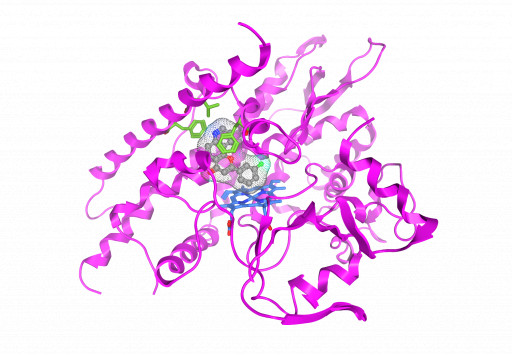CAMBRIDGE, England, July 19, 2022 (GLOBE NEWSWIRE) -- RxCelerate, a leading international outsourced drug discovery and development platform, today revealed details of a new small molecule discovery platform, RxNfinity™, that leverages machine learning, in silico structure modeling and combinatorial chemistry in a novel workflow that offers significant advantages over the current generation of tools to identify small molecule drugs against a wide range of protein targets.
"Today, we are launching a small-molecule discovery technology that is a step beyond anything available to our competitors, including the largest pharmaceutical companies," said Jill Reckless, CEO at RxCelerate. "In the same way our Galaxy™ antibody discovery platform took the process of discovering novel antibody therapeutics to a new level, RxNfinity™ represents a new apex for speed and efficiency in small-molecule drug discovery."
RxNfinity™ is the brainchild of star in silico discovery chemist Jon Heal, EVP at ProsaRx, the computational, drug discovery unit at RxCelerate. After almost two years of hard work and a large investment in new computational infrastructure, Heal has delivered a step change in the quality of hits he can deliver. "The problem with all existing chemical space libraries," explains Heal, "is the sheer diversity of possible molecules - there are more synthetically-tractable small molecules than atoms in the universe. Even the largest, such as the Merck MASSIV library, has 'only' 1020 molecules in it, representing a drop in the ocean compared to all possible molecules. As a result, identifying high-quality initial hits against a given target is challenging, especially as these large spaces are only being searched by 2D similarity or related methods requiring knowledge of existing active compounds before you begin. For a novel target, how do you get started?"
RxNfinity™, by contrast, moves the goalposts not by increasing the size of the library (although it is as large as any chemical space out there), but by enriching its composition for likely hits. "As the size of the library scales, so does the computational challenge," says Heal, "so improving the outcome by sheer brute force soon becomes intractable. So we turned to emerging machine learning technology to make our chemical space smarter rather than just larger."
RxNfinity™ adapts the 'virtual synthon' approach first described by Sadybekov and colleagues in the leading science journal Nature in December 2021 (Nature volume 601, pages452-459 (2022)). "In effect, the library is constructed in the active site of your target," says Nigel Ramsden, EVP at RxChemistry, who leads the medicinal chemistry group at RxCelerate. "Each building block, in turn, is assessed for quality of fit against the protein target, before being incorporated into the growing library, thereby tailoring the final chemical space to your target. It is conceptually simple, but the impact is transformative."
The output from the computational phase is a collection of synthetically tractable drug-like molecules which can be readily made and tested. The whole process, from target nomination to experimentally-verified hit, takes about six weeks. Equally importantly, in times of geopolitical instability, all the experimental work can be completed in the United Kingdom using locally-sourced chemicals, ensuring RxNfinity™ services are never disrupted.
"The key differentiation for RxNfinity™ is that the chemical space is dynamic, assembled de novo each time, uniquely incorporating the structure of the particular target and using only tractable chemistry. This ensures the available library capacity is filled with better candidates, which translates to a higher chance of delivering more complex pharmacological profiles together with drug-like properties," explained Ramsden.
In addition to designing and implementing the AI-based workflows, RxCelerate has made a large investment in a state-of-the-art computing infrastructure to run the modeling. "We are also delighted to have signed an agreement with Newcastle University to access the ROCKET HPC service, as well as scalable cloud computing resources," said Heal, "guaranteeing access to intensive processor power needed to deliver RxNfinity™ at scale."
"This new concept of dynamic chemical spaces is transformative," said David Grainger, Executive Chairman at RxCelerate. "The ability to generate tractable bespoke libraries on the fly for each target is delivering better hits than even the largest static spaces. Better still, our vision is to make the very best technologies available to everyone on a fee-for-service basis, allowing anyone with a good idea to reduce it to practice. With RxNfinity™, small-molecule discovery just got easier."
Notes for Editors
About RxCelerate
RxCelerate is an outsourced drug discovery and development company, founded in Cambridge, U.K., in 2013, with a focus on working smarter. It has grown rapidly to become one of the leading providers of drug development services in the United Kingdom. RxCelerate operates a unique model, providing capabilities to discover and develop drugs for clients, designing as well as executing every aspect of the research and development plan.
RxCelerate offers a wide range of services. The biology team specializes in in vivo pharmacology, offering proprietary models of a wide range of human diseases, as well as complex cell-based assays. The chemistry team provides medicinal chemistry, including in silico screening, and synthesis that integrates seamlessly with the in vitro testing capability. A dedicated team designs the optimum discovery or development strategy for each project, as well as integrated program management. By working closely together, these teams can deliver pharma-grade drug product candidates at a fraction of the cost of traditional approaches.
RxCelerate has a team of more than 60 employees and consultants based in 25,000 square feet of premium laboratory and office space in the Dorothy Hodgkin Building at the Babraham Research Campus, approximately five miles south of Cambridge, U.K., as well as offices in Boston, MA, and San Francisco, CA.
For more information, please visit us at rxcelerate.com and connect with us on Twitter (@RxCelerate). Contact our U.K. headquarters: jill@rxcelerate.com Tel: +44 (0)1223 804240. Contact our U.S. headquarters: info@rxcelerate.com Tel: +1 (857) 409-6028
Related Images
Image 1: In silica modeling
In silica modeling of small molecule drug candidates bound to a target protein
This content was issued through the press release distribution service at Newswire.com.
Attachment

